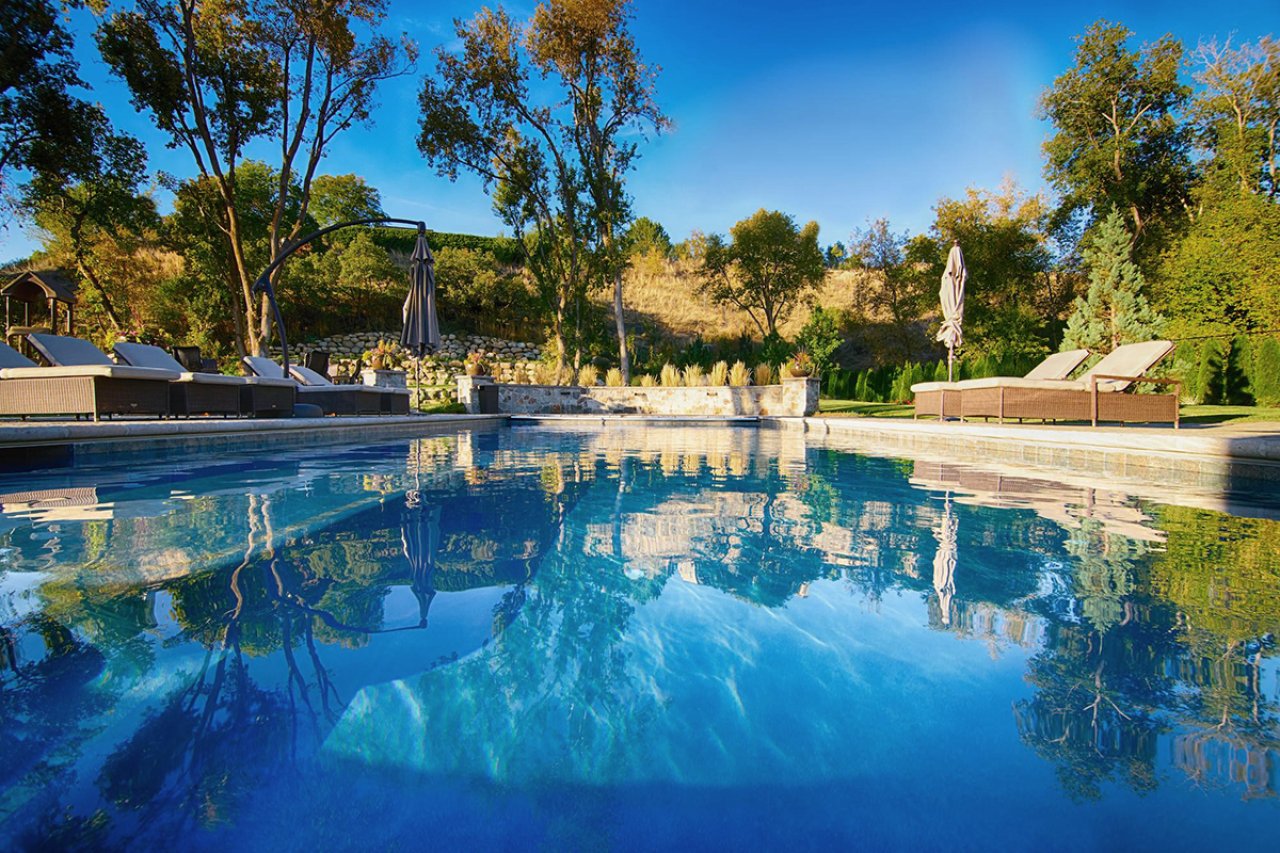PROPERTY CARE
What would a luxury landscape be without a beautiful water feature like a pool or a hot tub? Swimming, floating, or just soaking is not only one of the pleasures of life, but it’s a way to connect with your friends and family in a relaxed environment. When planning to install a pool or hot tub, however, you have an important choice to make: salt or chlorine?
A traditional chlorine pool is kept clean by intermittent addition of chlorine sticks or tablets, to replace the chlorine that has been neutralized by contaminants and UV rays. A side effect of this is that the concentration of chlorine will be highest after it is added and lowest right before it’s time to add more, with the optimal level somewhere in between.
Saltwater pools, despite what many people assume, also use chlorine. The difference, however, is that the chlorine concentration does not fluctuate, as it is produced at a steady, more fine-tuned level by a saltwater chlorinator via a process called electrolysis.
Saltwater and chlorinated water are both viable ways of keeping your pool clean and safe, and preventing the growth of algae. Here are some of the crucial differences between these modes of pool maintenance that you should consider before deciding.
As you might already know, chlorine is a harsh chemical. While salt can dry out your hair and skin, chlorine is much more extreme in its dehydrating properties, as it actively strips away your natural oils. This can cause dry skin, itchiness, and hair damage like brittleness and split ends. Chlorine will also reduce the lifespan of your swimwear or other clothing, whereas salt is generally harmless if the fabric is washed afterwards. Maintaining a chlorine pool also requires the storing and handling of chlorine, and therefore entails much more caution than salt, which is safe even for children and pets. Overall, saltwater pools are safer and less harmful than their chlorinated counterparts.
The pros and cons when it comes to price and upkeep are a bit more complicated. The biggest drawback to a saltwater pool is the initial investment: the saltwater chlorinator can cost as much as $1,800, plus the cost of installation. However, it does not take very many years to pay for itself, as the maintenance costs are significantly lower than those of a chlorine pool: you can expect to spend less than $100 annually on salt, compared to $300-$800 on chlorine and other maintenance chemicals for a chlorine pool. Keep in mind that more chlorine will be needed in warmer climates, regardless of what type of pool you choose!
One point in favor of chlorinated pools is their ubiquity, as you can expect every pool service to have the equipment and knowhow necessary to fix and maintain them. As saltwater pools are less common, it may be harder to find a qualified technician if you are not located in a major metropolitan area.
Comfort is something that is hard to put a price on. With lower levels of chlorine than their counterparts and roughly a tenth the salinity of ocean water, saltwater pools are generally considered to provide the more pleasant swimming experience. The salt level is comparable to that of human tears, which means you don’t need to worry about discomfort when opening your eyes underwater. Most people also report softer skin after swimming in a saltwater pool, with none of the itching and dryness that too often follows a dip into heavily-chlorinated water.
A pool or hot tub is a big project, and it’s important to know your options before committing. While each has pros and cons, overall a pool with a saltwater chlorinator provides a more comfortable and luxurious experience if you can afford the installation. If you are considering installing a pool or hot tub on your property, contact an experienced landscaper right away to discuss which option is right for you.



